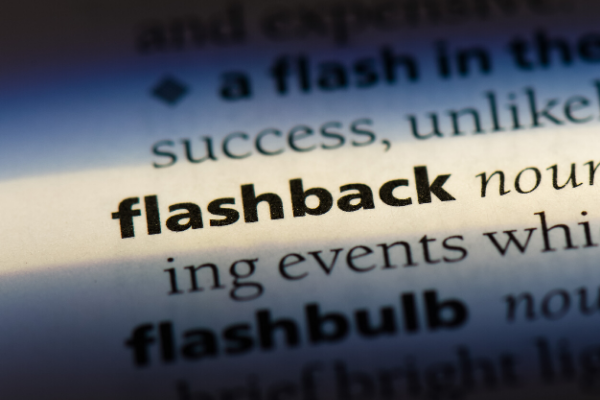If you are someone who has been diagnosed with post-traumatic stress disorder (PTSD), then you know all too well the reality of flashbacks. These intrusive memories can be incredibly disruptive and overwhelming, often resulting in a full-blown panic attack. In this blog post, we will discuss what flashbacks are, how to deal with them, and some helpful tips for managing this difficult symptom.
Contents
Defining PTSD
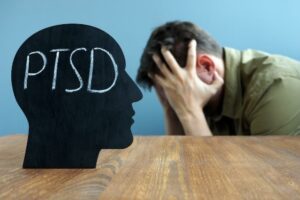
PTSD, a popular abbreviation for post-traumatic stress disorder, is a mental health condition that can develop after a person experiences or witnesses a traumatic event. This could be something such as a combat exposure, child abuse, sexual assault, or a natural disaster. For many people with PTSD, the memories of the trauma are so distressing that they have difficulty functioning in their day-to-day lives.
It is important to note that PTSD is not a sign of weakness. In fact, it is quite the opposite. It is a natural response to an incredibly stressful event. While some people are able to recover from trauma without any long-term effects, others may develop PTSD.
Defining Flashbacks
Flashbacks are one of the most common symptoms of PTSD. A flashback is when you relive the trauma as if it is happening in the present moment. This can be in the form of intrusive thoughts, memories, or even nightmares. For many people with PTSD, these flashbacks are so realistic and distressing that they can feel like they are actually living through the experience again. Flashbacks can last for a few seconds or minutes, or they can go on for hours or even days.
Flashbacks can often be confused with anxiety attacks or panic attacks. However, there are some key differences between the two. Flashbacks tend to be more vivid and detailed than anxiety or panic attacks. They also tend to last for a longer period of time. Additionally, people with PTSD often have flashbacks that are triggered by specific triggers, such as a certain sound or smell.
PTSD Flashbacks
Flashbacks can be a very debilitating symptom of PTSD. They can make it difficult to work, socialize, and even leave the house. Flashbacks can also be extremely distressing and overwhelming. They can make a person re-live the trauma over and over again.
PTSD flashbacks can have a number of triggers. These triggers can include a variety of presentations, such as:
- sounds
- smells
- tastes
- places
- people
- touch
- images
For many people with PTSD, these triggers can be very distressing. They can make the person feel like they are living through the trauma all over again. Additionally, flashbacks can be triggered by a variety of emotions, such as:
All of these can be very difficult emotions to deal with.
Signs And Symptoms
There are a number of signs and symptoms that can indicate that a person is having a flashback. These can include things such as:
- sudden and intense fear
- heart palpitations
- sweating
- trembling
- shortness of breath
- feeling dizzy or lightheaded
- nausea or vomiting
- chills or hot flashes
- a feeling of detachment from oneself or the world
If you notice these signs in yourself or someone else, it is important to seek help from a mental health professional.
Examples
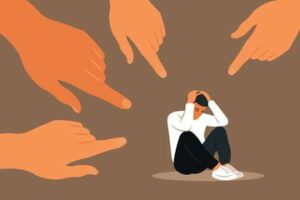
Here are a few examples of flashbacks:
- A veteran with PTSD is driving down the road. He hears a car backfire and suddenly he is transported back to combat. He can see the bombs going off and he can also hear the screams of his fellow soldiers, feeling like he is in danger and he starts to panic.
- A woman who was sexually assaulted is at a party with her friends. She sees the man who assaulted her across the room. She starts to feel dizzy and she can’t breathe and also feels like she is going to be sick. The woman has to leave the party because she is feeling so overwhelmed.
- A child who was abused by their parent is at school. Their teacher asks them to read out loud in front of the class. The child starts to feel like they are going to be hurt. They can’t breathe and also start to shake. They feel like they are back in their home, being abused by their parent.
These are a few examples that show how distressing and overwhelming flashbacks can be. If you are experiencing flashbacks, it is important to seek help from a mental health professional.
Effects On Life
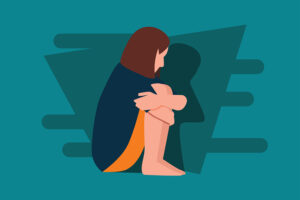
Flashbacks can have a profound effect on a person’s life. They can impact various domains of life such as:
- Work: flashbacks can make it difficult to concentrate or focus on work. It can also be difficult to interact with co-workers. This may lead to absenteeism or job loss, poor performance, or procrastination.
- School: flashbacks can make it difficult to learn new information or retain information. It can also be hard to concentrate in class or participate in class discussions. These factors result in poor grades, disparities between classmates as well as a dip in self-esteem.
- Home life: flashbacks can make it difficult for a person to be around their family or friends. They may avoid certain activities or places that trigger their flashbacks. This can result in isolation, interpersonal conflicts, communication gaps, as well as other personal issues.
- Relationships: flashbacks can make it difficult to be around other people. It can also be difficult to trust other people. This may lead to social isolation, intimacy issues, trouble being expressive and available, and an increase in fights.
- Social life: flashbacks can make it hard for a person to participate in social activities. They may avoid going out in public or they may stop seeing friends altogether. This can cause a person to feel lonely, isolated and uncared for.
- Health: flashbacks can have a negative impact on a person’s physical health. They may experience headaches, stomachaches, or other physical problems. They may also make a person vulnerable to mental health issues such as depression, anxiety, or insomnia. It may also further lead to substance abuse or addiction.
All of these side effects can have a significantly negative impact on a person’s life which can have a huge depletion in the quality of life.
How To Deal With PTSD Flashbacks
If you are having a PTSD flashback, there are a few things that you can do to help yourself feel better.
Professional Help
It is important to find a treatment that works for you. Everyone experiences PTSD differently and there is no one-size-fits-all approach to treatment. If you are struggling with PTSD, please seek help from a mental health professional. They offer a variety of treatments to help you manage and ease your condition. Some of the most common as well as effective treatments include:
- Cognitive Behavioral Therapy: This therapy helps you change the way you think about your trauma. It also teaches you how to manage your emotions and cope with your symptoms.
- Art Therapy: Art therapy is a type of therapy that uses art to help people express their emotions. It can be very helpful for people who struggle to express themselves verbally. It works by helping you to process your emotions and to understand your trauma in a safe and non-threatening way.
- Prolonged Exposure Therapy: This therapy helps you face your fears and learn new coping skills. It works by gradually exposing you to your trauma in a safe and controlled environment.
- Eye Movement Desensitization and Reprocessing (EMDR): This therapy uses eye movements to help you process your trauma. It works and focuses on the emotions and physical sensations that you feel during a PTSD flashback.
- Support Groups: There are many support groups available for people with PTSD. These groups provide a safe and supportive environment where you can share your experiences with others who also understand what you are going through.
- Medications: There are many different types of medications that can be used to treat PTSD. Some of the most common include:
- Antidepressants: These medications can help improve your mood and ease your symptoms.
- Anti-anxiety Medications: These medications can help reduce anxiety and ease your symptoms.
- PTSD Medications: There are many different types of PTSD medication that can be used to treat your condition.
You should talk to your doctor about which type of medication is right for you.
Self-Care Strategies
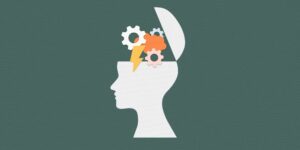
In addition to professional help, there are also many self-care strategies that you can use to deal with PTSD flashbacks. Some of the most common include:
- Identify your triggers: Identifying your triggers can help you avoid them or be prepared for them when they do occur. This helps in lessening the intensity as well as the frequency of your flashbacks.
- Create a mantra: A mantra is a phrase or saying that you repeat to yourself when you are feeling anxious or stressed. This can help you calm down and feel more in control. For example, you can say to yourself “I am safe” or “I am strong”.
- Stay in the present: One of the best things that you can do is to stay in the present moment. This can be difficult to do, but it is important to focus on the here and now.
- Create a safe space: When you find yourself in a situation where you are feeling unsafe, it is important to have a safe space that you can go to. This could be a physical place or it could also be a mental space.
- Utilize your support system: It is important to have a support system in place when you are dealing with PTSD. This could be friends, family, or a support group. These people can offer you emotional and practical support.
- Activate your senses: When you are having a PTSD flashback, it is important to use your senses to help ground you in the present. This can be done by focusing on things that you can see, touch, smell, or taste.
- Journal: Journaling can be a very helpful way to process your thoughts and emotions. It can also help you track your progress and see how far you have come.
- Relaxation Techniques: There are many different relaxation techniques that you can use to ease your symptoms. Some of the most common include:
Progressive Muscle Relaxation
Visualization
Deep Breathing
Mindfulness Meditation
These are just a few of the many different strategies that you can use to deal with PTSD flashbacks. It is important to find what works best for you and to be patient with yourself.
- Exercise: Exercise is a great way to release tension and improve your mood. It can also help improve sleep quality, which can further be helpful for people with PTSD. It works by releasing endorphins, which are natural chemicals that improve mood.
- Diet: Eating a healthy diet can help improve your mood and ease your symptoms. Eating plenty of fruits, vegetables, whole grains, as well as lean proteins can help improve your mental health.
- Sleep: Getting enough sleep is important for people with PTSD. It can help improve your mood and ease your symptoms. Ensuring good quality sleep can also be helpful for people with PTSD.
PTSD flashbacks can be a really tough thing to deal with. But there are many different treatments and self-care strategies that you can use to ease your symptoms and make them more manageable. Remember, you are not alone in this! There are many people who understand what you are going through and are here to support you.
Conclusion
PTSD can be a very debilitating condition, but there are many things that you can do to ease your symptoms. If you are struggling with PTSD, please seek help from a mental health professional. There are many different types of treatments and self-care strategies that can be used to ease your symptoms. With the right treatment, you can live a happy and healthy life.
For more information, please contact MantraCare. PTSD or Post-Traumatic Stress Disorder is a mental health condition that affects people who have experienced or witnessed a traumatic event. If you have any queries regarding Online PTSD Counseling experienced therapists at MantraCare can help: Book a trial PTSD therapy session
